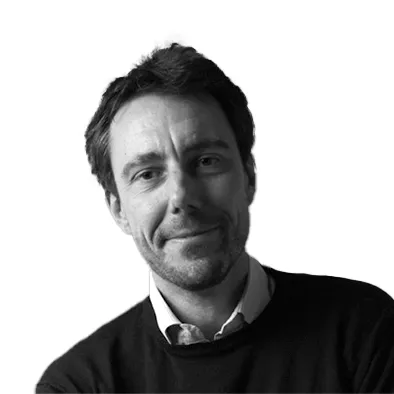Lorenzo
Massa

ITALY Full Professor Aalborg University Business School Visiting Faculty
Lorenzo Massa consults, speaks, researches, and teaches in the fields of strategy, innovation, and sustainability. He is the Managing Director of the Business Design Lab and Full Professor for Strategy, Innovation and Sustainability at Aalborg University Business School.
Lorenzo is member of the World Economic Forum’s Expert Network for Innovation and adjunct professor for executive education at École Polytechnique Fédérale de Lausanne (EPFL), the International Academy of Sport Science and Technology (AISTS), Frankfurt School of Finance and Management as well as Bologna Business School (BBS).
His research has been published in publications such as the Academy of Management Annals, the Journal of Management, and the Oxford Encyclopedia of Business and Management, among others. He is author, together with Florian Lüdeke-Freund (ESCP, Berlin) and Henning Breuer (HMKW, Berlin) of Sustainable Business Model Design: 45 Patterns.
Lorenzo sits on the advisory board of different for-profit and nonprofit organizations and is a trusted strategy, innovation, and sustainability advisor to executives in companies across many industries.
Lorenzo holds graduate degrees in mechanical engineering from the Dublin Institute of Technology (B. Eng.) and the University of Genoa (M.Sc. Eng.) and a Master’s and a PhD in Management from IESE Business School in Barcelona. As an engineer he worked as a technologist in the design of blast furnaces and continuous casting processes.
COURSES
WORKSHOP – While innovating is at the core of the development of any type of organization, the process of innovation is particularly delicate in cooperative business, as it has important social objectives at the center of its agenda. The innovation workshop provides managers with fundamentals and methodologies for innovation process management while at the same time developing a solid competitive and financial foundation and reaching important social objectives.
INSPIRATIONAL AND MOTIVATIONAL SESSIONS – Being able to innovate one’s Business Model represents for the company a new frontier of competitive advantage, the effects of which can come to redefine the dynamics of entire industrial sectors. The Business Model describes the logic that an organization uses to capture, create and distribute value of various kinds (economic, environmental, social). The analytical tools of the Business Model offer a new perspective of business analysis, structure the cognitive effort and guide the identification of new opportunities.
Executive MBAThis course is designed to equip participants with the essential skills and knowledge required for managing artificial intelligence (AI) within the context of business innovation. It aims to systematically guide learners in understanding, embracing, and capitalizing on the transformative potential of AI to redefine business futures. The first part of the course focuses on AI and different aspects of business innovation, such as products, services, processes, organizational structures, and business models, and the exploration (sensing, seizing and implementing) of business opportunities related to AI. The second part, explores the role of AI in enhancing various stages of the Business Innovation pipeline, providing practical insights into leveraging AI for business evolution.
Data Management
Artificial Intelligence for Business
The course is aimed at professionals who want to undertake a path of information, training and updating in the area of sustainability in all its forms (economic, social and environmental).
The course provides cutting-edge information, economic skills, and tools for analyzing markets, financial products, necessary for private bankers, consultants, asset managers within banks and insurance companies, foundations, or for those in private practice.
Executive MBA English Edition